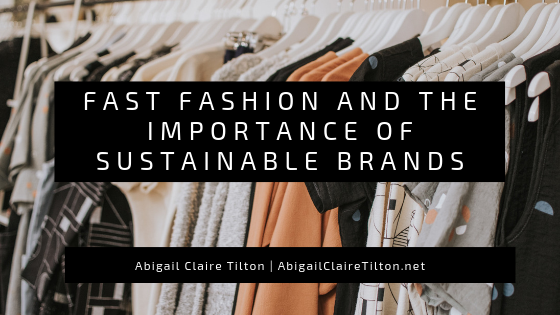Fast fashion refers to inexpensive clothing that is produced rapidly to meet the current market demand. Unfortunately, the speed of the manufacturing process and the types of materials that are used in the process of producing clothing so quickly can be unsustainable and in many cases, socially unjust.
Sustainability Concerns
These clothes are often produced in developing countries by underpaid workers in dangerous working conditions. What’s more, many have commented that fast fashion impoverishes artisans in these developing countries even more by chiseling away at their livelihoods and culturally appropriating techniques that have been passed down among indigenous peoples for generations.
Fast fashion might put the latest trends on consumer’s backs, but trouble comes into play when the ecological impact is taken into account. Fast fashion often uses synthetic textiles that can contain dangerous dyes and harmful plastics.
The reason that consumers in America can get tees for five or ten dollars, even considering the shipping costs, is that this kind of apparel is made without much thought to the larger environmental impact. Companies like H&M and Forever 21 are as guilty as Zara and major retailers like Target in neglecting the environmental costs of making clothes so affordable.
Sustainable Alternatives
The number one way to get fashionable clothes without spending a lot of money or harming the environment is through thrifting. The act of thrift shopping keeps new items from being produced in the vein of fast fashion and keeps more apparel out of landfills, where they continue to pollute the environment.
A second way to avoid doing indirect environmental damage with clothing choices is to vow to buy less clothing. Decide on a few core favorite combinations, colors, and textures. There’s no need to go completely minimalist here, but the less that someone buys, the smaller their carbon footprint will be.
Lastly, try to shop fair trade products when at all possible. Fair trade ensures that the artisans and makers of the clothing are paid fair wages and are working in safe conditions. Fair trade also supports several other important issues, such as women’s rights and education.
Realize that the reason fast fashion is so cheap is because the materials tend to be fairly expendable: They wear out and tear pretty quickly. Make purchases based on longevity and timeless fashions rather than what’s hot right now. Higg Index is a good tool to use to assess the total environmental impact of your clothes.

